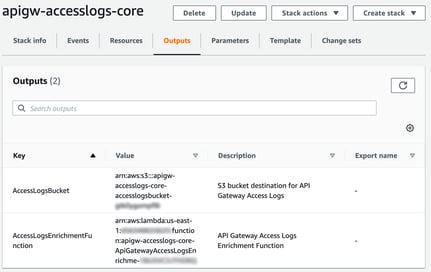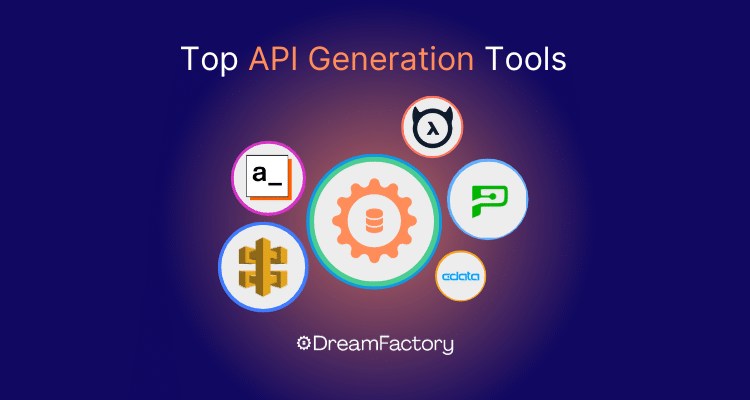While APIs are powerful tools, creating them from scratch can be a complex and time-consuming process. Fortunately, the advent of API generation tools has revolutionized this aspect of software development, enabling developers to automate and expedite the API creation process. In this blog post, we will explore some of the top API generation tools available today, each offering unique approaches to simplify and accelerate API creation.
Here's what to know about API generation tools:
- API generation is a revolutionary process that automates the creation of APIs, eliminating the need for manual coding.
- These tools analyze existing code or specifications to generate APIs efficiently and accurately, simplifying the development process.
- API generation allows developers to focus on core business logic and functionality, accelerating application development.
- When evaluating API generation tools, consider factors such as functionality, ease of use, compatibility, customization, performance, support, security, and cost.
What is API Generation?
API generation, often referred to as "automated API creation," is a revolutionary process that has rapidly gained traction in the realm of software development. This technique involves the automatic generation of APIs by leveraging cutting-edge technologies and innovative methodologies. Through this method, developers can effortlessly produce APIs without delving into tedious manual coding or spending countless hours deciphering complex specifications.
API generation serves as a solution for expediting the API creation process. By analyzing existing code or synthesizing API specifications, these covert tools can generate APIs efficiently and precisely. This operation simplifies the overall API development lifecycle, ensuring a seamless integration between disparate software applications.
By employing the use of API generation, developers can focus their attention on the core business logic and functionality of their applications, unhindered by laborious API creation. The nature of this approach enables developers to navigate through the complexities of software development efficiently.
How Do You Evaluate API Generation Tools?
When evaluating API generation tools, keep in mind the following factors:
- Functionality and features: Assess the tool's capabilities, such as code analysis, specification-driven generation, or low-code platforms.
- Ease of use: Look for a user-friendly interface and comprehensive documentation to ensure smooth adoption.
- Compatibility and integration: Check if the tool works with your existing tech stack and integrates well with other tools and platforms.
- Customization and extensibility: Evaluate the tool's flexibility in adapting to your project's unique needs and its ability to accommodate future enhancements.
- Performance and scalability: Ensure that the generated APIs perform well under high traffic and have scalability options.
- Community and support: Consider the availability of an active community and support channels for assistance and best practices.
- Security and compliance: Check if the tool follows security standards and offers secure authentication and encryption.
- Cost and licensing: Evaluate the pricing structure and associated costs to align with your budget and project requirements.
By considering these factors, you can choose an API generation tool that best suits your needs and ensures efficient API creation.
Top API Generation Tools to Consider

DreamFactory
Rating: 4.5/5 on G2, Easiest to Use
DreamFactory Software offers a robust and efficient solution for API generation, making it an excellent choice for developers. Here are some key reasons why DreamFactory's API solution stands out:
- Fast and Secure API Generation: With DreamFactory, developers can instantly generate APIs from any database. This capability allows for quick API creation, saving valuable time and effort. Additionally, DreamFactory emphasizes enterprise security controls, ensuring that the generated APIs are secure and adhere to industry standards. This focus on security provides peace of mind for developers and organizations.
- Versatility and Flexibility: DreamFactory operates seamlessly in various environments, whether on-premises, air-gapped, or in the cloud. This flexibility allows developers to deploy and use the platform in the manner that best suits their needs and infrastructure. By accommodating different environments, DreamFactory enables easy integration with existing systems and technologies, both newer and legacy.
- Accelerated Development and Cost Savings: One of the key advantages of using DreamFactory is its ability to speed up development. Developers can develop applications four times faster, resulting in significant time and cost savings. By automating the API generation process, DreamFactory removes project management uncertainty and allows developers to focus their talents on critical issues, leading to improved efficiency and productivity.
To experience the power of DreamFactory, developers can start a hosted trial or consult with our engineers to gain access to an on-premises environment. This accessibility ensures that developers can explore the platform and evaluate its suitability for their specific requirements.
Amazon API Gateway

Rating: 4.1/5 on G2
Amazon API Gateway is a highly capable and scalable service that simplifies the creation, management, and security of APIs. Here are the key benefits and a consideration to keep in mind when using Amazon API Gateway:
Benefits of Amazon API Gateway:
- Easy API Creation and Management: Amazon API Gateway provides a user-friendly interface that makes it simple to create, publish, and maintain APIs. Developers can define RESTful APIs and WebSocket APIs with ease, enabling real-time, two-way communication applications.
- Scalability and High Availability: API Gateway is designed to handle a high volume of concurrent API calls, ensuring your APIs can scale seamlessly as your application grows. It provides built-in traffic management, allowing you to control request flow, handle spikes in traffic, and maintain optimal performance.
- Security and Access Control: API Gateway offers robust features for securing your APIs. It supports various authorization methods and access control mechanisms, including API keys, IAM roles, Lambda authorizers, and OAuth. You can implement fine-grained access control to protect your resources and data.
Consideration - Vendor Lock-in: One potential consideration when using Amazon API Gateway is the vendor lock-in effect. As an AWS-specific service, it tightly integrates with other AWS services, which can lead to dependencies on the AWS ecosystem. If you plan to migrate to another cloud provider in the future, it may require rearchitecting or reconfiguring your API infrastructure.
Abstracta
Rating: Unrated on G2
Abstracta is an advanced data abstraction solution that aims to unify, restify, fortify, and democratize data. It offers a No code/Low code Software-as-a-Service (SaaS) platform that can auto-generate APIs in under 60 seconds from a wide range of data sources.
Key features of Abstracta include:
Abstracta allows users to auto-generate APIs from over 40 different data sources, including relational databases like Oracle, SQLServer, MySQL, NoSQL databases like MongoDB, caching systems like RedisCache, legacy applications based on SOAP APIs, message queues like ApacheMQ, and other API endpoints. This versatility enables seamless integration with diverse data environments.
- No-Code/Low-Code API Design and Management: With Abstracta, users can design, define, and manage complex APIs without writing code. The platform provides an intuitive interface for creating and configuring APIs, simplifying the development process and reducing the need for manual coding.
- Data Security and Mirroring: The platform ensures data security through a 5-tiered approach, employing the shift-left approach to secure data at every stage. Additionally, Abstracta supports data mirroring with both PULL and PUSH modes, enabling data replication and synchronization across different environments.
- Deployment Flexibility: Abstracta is available in the Azure Marketplace and can be deployed on various cloud platforms, including GCP, AWS, and private clouds. It also provides out-of-the-box support for Kubernetes, making it a modern, container-based application.
One potential downside of using Abstracta is that its extensive capabilities and flexibility may require a learning curve for users who are new to the platform. While Abstracta offers a no-code/low-code approach, it still requires understanding the platform's features, configuration options, and data source compatibility. Users may need to invest time in getting familiar with the platform's functionalities before fully leveraging its potential.
Appsmith

4.7/5 on G2
Appsmith is an open-source platform that empowers developers to create visually appealing and robust internal applications that can interact with multiple data sources. Whether you need a customer support portal, sales dashboard, marketing tracker, admin panel, or a frontend interface for data management, Appsmith enables you to build these applications for various internal use cases rapidly.
Key features of Appsmith include:
- Git Integration for Version Control: By connecting your Git hosting provider to Appsmith, you can ensure better access control, version management, and compliance with development processes. This integration enables you to track changes, collaborate efficiently, and maintain code integrity throughout the application development lifecycle.
- Audit Logs for Monitoring and Compliance: With audit logs, Appsmith provides a detailed trail of user activity, events, and shares within your applications. This feature enables you to track changes, monitor application usage, and identify potential issues. It also helps in complying with security standards and regulations.
- Granular Access Controls: Appsmith allows you to configure access controls at different levels, including roles and groups, for entities, actions, apps, workspaces, and instances. This granular control ensures that team members have appropriate access permissions based on their responsibilities and requirements.
While Appsmith provides a range of out-of-the-box features and components, there may be limitations in terms of customization options for more complex or specialized requirements. This can potentially restrict the ability to tailor the application precisely to specific business needs.
PrestoAPI

Rating: 4.6/5 on G2
PrestoAPI is a cloud-based, no-code tool that enables developers to generate RESTful APIs instantly from various data sources. It supports SQL Server, MySQL, PostgreSQL, MongoDB, and Oracle database systems, providing versatility in integrating with different data environments.
Key features of PrestoAPI include:
- Role-Based Access Control: PrestoAPI allows you to assign roles to users, ensuring granular access control throughout your application or specific projects. This feature enhances security and allows for fine-grained permission management.
- Robust Security Measures: PrestoAPI prioritizes security and provides safeguards through Identity Server, OAuth 2.0, and Active Directory integration. These measures help authenticate and authorize users, ensuring secure access to the generated APIs and protecting sensitive data.
While the functionality and capabilities of PrestoAPI are valuable, the user interface may require additional effort to navigate and work with effectively. Make sure you assess the usability aspect and examine whether the UI limitations align with your team's preferences and requirements. Exploring the UI and conducting a usability evaluation before fully committing to the tool can help determine if it meets your expectations and aligns with your development workflow.
Hasura

Rating 4.7/5 on G2
Hasura is a good tool for quickly setting up a production-grade GraphQL API, whether you choose to run it locally or in the cloud. It eliminates the need for extensive GraphQL expertise upfront, making it popular among developers and architects. By using Hasura, teams can save significant time and effort that would otherwise be spent on building, shipping, and maintaining APIs.
One nice feature of Hasura is its built-in authorization engine, inspired by Role-Based Access Control (RBAC) and known as RLS (Row-Level Security). This engine allows you to easily define and enforce authorization rules at a model level, ensuring secure access to your GraphQL API. Whether you need to grant access to developers within your organization or extend it to external parties, Hasura simplifies the process and enhances data security.
CData API Server

Rating: Unrated on G2
CData API Server is a user-friendly and lightweight web application that enables the creation and exposure of data APIs without the need for custom development. With its intuitive point-and-click configuration, users can easily create and configure access to data from various popular clients such as Microsoft Power BI, Salesforce Lightning Connect, SharePoint External Lists, Excel, PowerPivot, and more. This simplifies the process of connecting and integrating data from different sources, making it accessible to a wide range of applications and tools.
Key features of CData API Server include:
- Data API Creation: CData API Server simplifies the process of creating data APIs by providing a user-friendly interface. Users can quickly define the data sources they want to expose as APIs and configure the necessary settings without writing complex code.
- Seamless Integration: The platform offers seamless integration with popular clients, making it easy to connect and interact with data from applications like Microsoft Power BI, Salesforce Lightning Connect, SharePoint External Lists, Excel, PowerPivot, and other compatible tools. This enables users to access and utilize their data efficiently within their preferred applications.
- Point-and-Click Configuration: CData API Server eliminates the need for manual coding by providing a simple point-and-click configuration interface. Users can define data access rules, specify data transformations, and manage security settings through intuitive visual controls.
Getting Started With DreamFactory
Developing APIs can be a complex, time consuming, and expensive process. It also exposes businesses to a number of risks including consistency, quality, and developer resourcing. DreamFactory is a REST API generation tool for 20+ databases and a range of other data sources. It gives you the ability to generate secure and fully documented APIs in a matter of minutes. Ready to get started?
Sign up for a 14-day free trial and start creating your APIs today!
Terence Bennett, CEO of DreamFactory, has a wealth of experience in government IT systems and Google Cloud. His impressive background includes being a former U.S. Navy Intelligence Officer and a former member of Google's Red Team. Prior to becoming CEO, he served as COO at DreamFactory Software.
























 Blog
Blog

